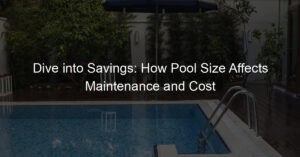Adding a swimming pool to your home can be a significant decision that raises questions about the value it adds to your property. With varying opinions on the matter, it is crucial to consider factors such as location, maintenance costs, and the preferences of potential home buyers. Some homeowners regard a pool as an added luxury, while others may see it as a potential burden.
In this article, we’ll discuss the impact of swimming pools on property values, along with evaluating the influence of different pool types and their values. We’ll also look at the effect of adding a pool on home insurance and the ongoing costs of maintaining a pool in comparison to the potential increase in property value. This information is relevant for homeowners considering whether to install a pool or for potential homebuyers trying to determine if a pool is a valuable investment.
To answer the question, “Does a pool add value to your home?” it is essential to examine multiple angles, such as insurance, location, and the overall buyer preferences for your area. No one-size-fits-all answer exists, but by considering various factors, you can make an informed decision that will best suit your needs and financial goals.
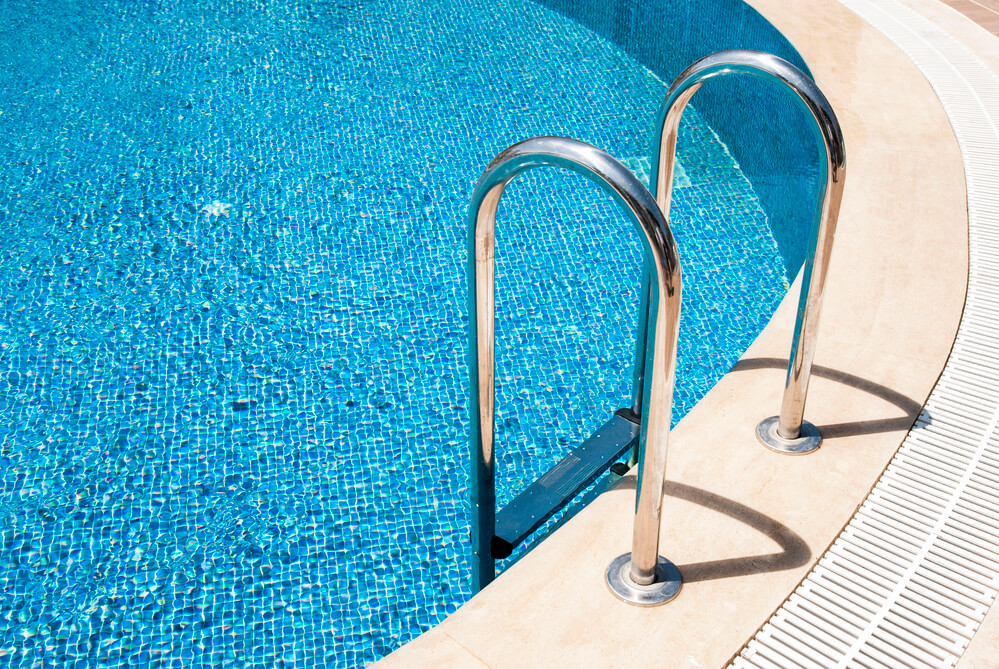
Key Takeaways
- Pools can potentially add value to a home, but this depends on factors such as location and buyer preferences.
- Different pool types and their associated costs can influence the overall impact on property value.
- Maintenance and insurance costs should be considered when evaluating the long-term value of having a pool.
Understanding Home Value
When I think about the value of my property, there are many factors I need to consider. A crucial element in the real estate world is the appraisal of a home, which typically involves an appraiser assessing the condition, size, and location, comparing the house with similar properties in the area, and adjusting for any unique features.
Equity is an essential aspect of home value. As a homeowner, I should understand that the equity of my home corresponds to the difference between the market value of my property and the outstanding balance on my mortgage. If needed, I can tap into my home’s equity through a home equity loan or a home equity line of credit (HELOC) to fund significant expenses like home improvements or education.
Market conditions also play a vital role in determining a home’s value. A property’s market value depends on demand, supply, economy, and interest rates. For instance, if there are many available houses in an area and fewer buyers, it could result in lower home values. On the other hand, a strong economy and low interest rates often encourage home buyers, which can drive up property values.
The condition of my home is another essential factor that can impact its value. A well-maintained house with updated features is generally worth more than a similar property in need of extensive repairs. As a homeowner, keeping my house in good condition, making improvements, and updating outdated elements can help enhance its market value.
Adding a pool to my property can be a decision that affects the overall value of my home. However, whether it adds to or detracts from the value depends on various factors such as location, climate, and surrounding properties. Considering the potential impact on property value is essential when deciding if installing a pool is the right choice for me and my family.
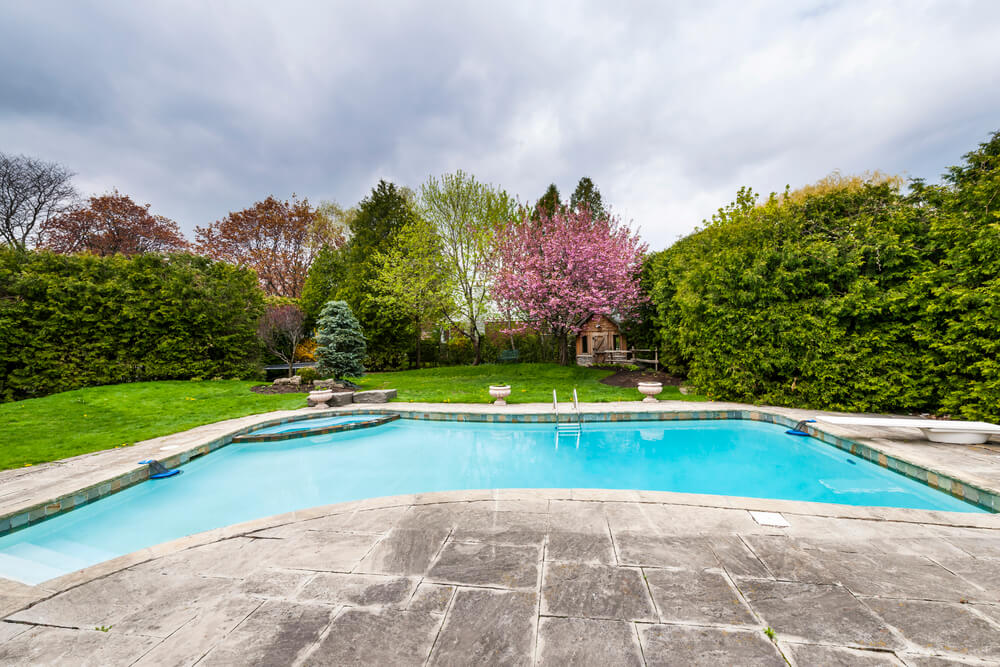
Pool Types and Their Values
In-Ground Pools
In my experience, in-ground pools are a popular choice for homeowners looking to boost their home value. They come in a variety of materials, such as concrete and fiberglass. When installing an in-ground pool, the average cost can vary greatly depending on the size of the pool and material chosen. Of course, the installation cost also depends on where you live, as labor and material costs differ by location.
A well-designed in-ground pool can potentially add 5 to 8 percent to your home’s value, though this is just an estimation and can vary depending on your specific property and location. For example, if my property is worth $400,000, I could see a potential increase in value of about $20,000 to $32,000.
Above-Ground Pools
Above-ground pools are another option for homeowners seeking to add a pool to their property. These pools are typically less expensive to install compared to in-ground pools and can still offer some value to a home. However, it’s essential to keep in mind that above-ground pools may not be as highly valued as in-ground pools by potential buyers.
When deciding whether to install an above-ground pool, I would consider factors such as my budget, property size, and personal preference. It’s essential to research the average cost of an above-ground pool, including installation costs and any necessary maintenance, to determine if it’s a worthwhile investment for my home.
In conclusion, both in-ground and above-ground pools can add value to your home, but the extent of the added value depends on factors such as the pool’s size, materials, and overall appeal to potential buyers.
Impact on Home Insurance
As a homeowner, it’s essential to consider how a pool may affect our homeowner’s insurance. Adding a pool to our home often leads to higher insurance rates for a couple of reasons. Firstly, there’s an additional piece of property to cover for damages. Secondly, having a pool increases the likelihood that we might file a liability claim.
In order to properly protect our investment, it’s crucial to make sure our homeowner’s insurance covers any potential damages to our in-ground swimming pool. Generally, this might cause a premium increase of around $50 a year. However, it’s important for our insurance provider to classify whether the pool is considered part of the home itself or an external structure, as this classification may impact the replacement cost value or personal property limit.
It’s important to keep in mind that a pool may also require us to maintain a higher level of liability insurance. This is because pools carry inherent risks, such as accidents or injuries that could occur on our property. In order to protect ourselves financially, it might be necessary to increase our liability coverage to account for these potential risks.
So, while having a pool in our home might add value or make it more appealing to potential buyers, it’s essential to weigh the potential increase in our insurance costs before committing to installing a pool. As a friendly reminder, it’s always a good idea to consult with our insurance provider to discuss the specifics of our policy and any potential changes that may occur as a result of adding a pool to our property.
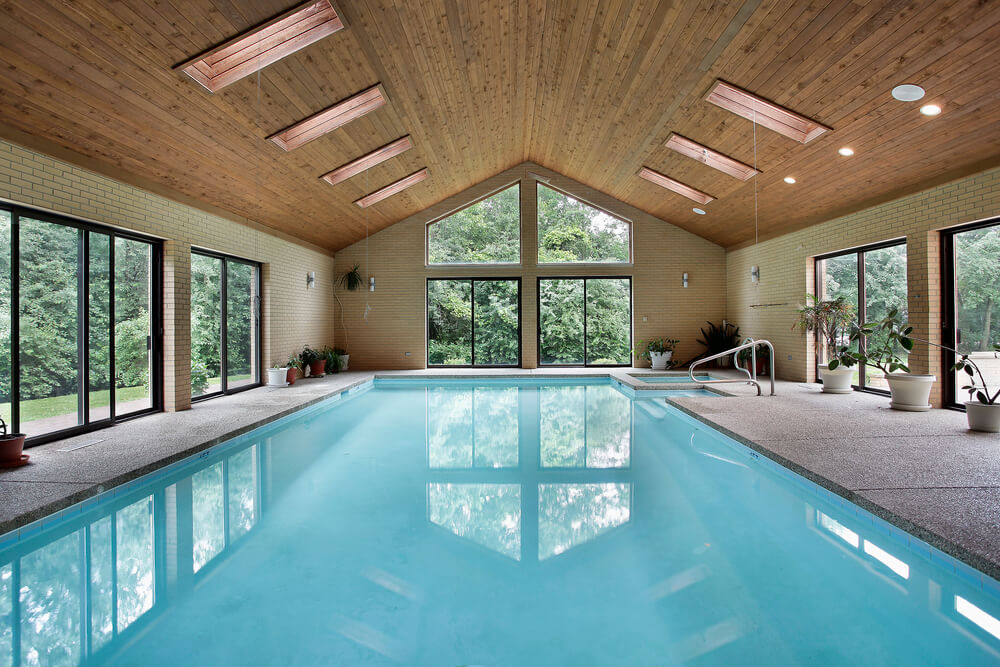
Location Factors
When considering if a pool adds value to a home, location plays a significant role. In warmer climates, like Los Angeles and Tampa, pools are an attractive feature and can add considerable value to a home. In Los Angeles, for example, a pool can increase a home’s value by up to $95,000. In Tampa, this figure is around $30,000.
However, in colder climates, a pool might not be as appealing to potential buyers. In these areas, the maintenance and heating costs often outweigh the benefits of having a pool. Additionally, the pool may not be usable for a significant portion of the year, which could deter people from considering properties with pools.
Even within warmer climates, the neighborhood and market can influence a pool’s impact on a home’s value. In more affluent neighborhoods or metro areas where space is scarce, having a pool could be a rarity and a luxury, making a home more desirable and increasing its value.
However, in areas with abundant public pools or where most homes already have private pools, the added value may not be as significant.
In conclusion, the effect of a pool on a home’s value is highly dependent on the location, market, and climate of the area. A pool can be a major selling point in warm climates and upscale neighborhoods but might not carry the same appeal in colder climates or regions with abundant swimming facilities. Overall, it’s essential to consider these factors when deciding if a pool is a worthwhile investment for your home.
Maintenance and Ongoing Costs
Pool Maintenance
In my experience with owning a pool, I’ve found that regular maintenance is essential to keep it clean and safe for use. Some key tasks involved in pool maintenance include:
- Cleaning the pool: It is crucial to skim the surface and vacuum the floor regularly to keep debris and dirt out of the water.
- Filters: Pool filters must be cleaned or replaced periodically to ensure they are working efficiently.
- Chemicals: Maintaining the right balance of chlorine, pH levels, and other essential chemical components helps to keep the water sanitary and free of harmful bacteria.
- Inspections: Conducting regular checks of the pool’s liner, pumps, and other features can help identify any potential issues that need to be addressed before they become bigger problems.
Utility Costs

Having a pool also comes with some ongoing utility costs that need to be considered. Increased utility bills can be a result of operating the pool pump and heater, in addition to the regular household utilities. Some examples of these expenses include:
- Electricity: Pool pumps are responsible for circulating the water and are an essential part of maintaining a clean pool. However, they consume a significant amount of electricity, which can increase the monthly utility bills.
- Water: Filling the pool and topping it off throughout the seasons can lead to increased water usage.
- Heating: Depending on the climate and pool usage, pool heaters can significantly impact the cost of utilities.
Overall, while pools can be an enjoyable addition to a home, they can also contribute to higher maintenance and ongoing costs. As a homeowner, it’s essential to be aware of these factors when deciding whether a pool is the right investment for you.
The Effect on Potential Buyers
Buyer Preferences
As a homeowner, one of the key factors that affect the value of my home is how attractive it is to potential buyers. Some prospective buyers view a pool as a luxury, especially in areas with hot climates, and it can make my home more marketable. On the other hand, some buyers might prefer a large yard and see the pool as taking up valuable space. Ultimately, it depends on the preferences and needs of my home’s potential buyers.
In certain areas, having a pool in the outdoor living space can help attract potential buyers and earn an average of 7% more for the home when it’s time to sell. However, it’s essential to consider comparable homes in the neighborhood to see how much value a pool truly adds.
Safety Considerations
When considering adding a pool to my home or selling a home with a pool, it’s crucial to think about the safety aspects. Families with young children might view a pool as a liability rather than an asset. To address these concerns, it’s essential to install proper safety measures, such as:
- Fencing: A fence surrounding the pool can provide an essential barrier to keep children away when not supervised. Be sure to follow any local regulations regarding pool fencing.
- Pool cover: A quality pool cover can prevent accidents when the pool is not in use, as well as assist in keeping the pool clean and insulated.
By focusing on both buyer preferences and safety considerations, you can better understand how a pool may impact the value of your home and its appeal to potential buyers.
Considering the Installation of a Pool
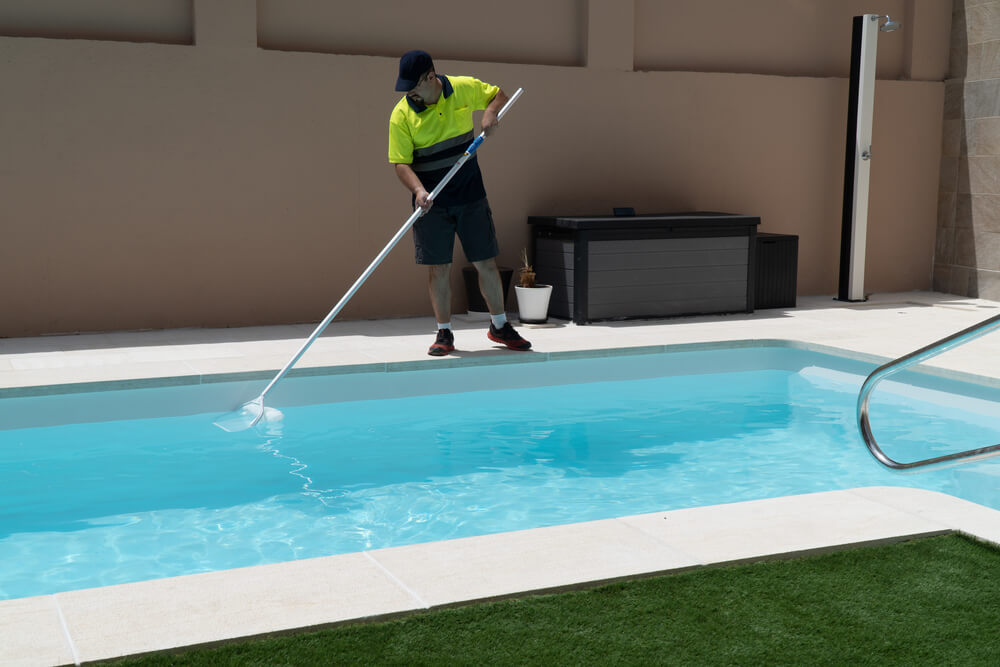
As I’ve been thinking about installing a pool in my backyard, I realized there’s much to consider. Two significant factors I needed to address were financing options and choosing the right contractors. So, I decided to do some research to guide me through this process.
Financing Options
Investing in a pool installation can be quite pricey, but it could also add value to my home. To finance the project, I considered the following options to fund it:
- Home Equity Loan: I can borrow against the equity in my house and use it to pay for the pool installation. This option usually offers lower interest rates than other loans, and the interest may be tax-deductible.
- HELOC (Home Equity Line of Credit): Similar to a home equity loan, a HELOC allows me to borrow against my home’s equity. However, the main difference is that I can only borrow and pay interest on the amount I actually use.
- Credit Card: While it’s possible to pay for a pool installation with a credit card, it’s essential to be cautious. Credit card interest rates tend to be higher, and the accrued interest may outweigh the benefits of earning rewards points.
Before moving forward, I made sure to compare these pool financing options and choose the one that best fits my financial situation.
Choosing the Right Contractors
Another important aspect of a pool installation project is selecting the right pool contractors. To ensure I hire reliable and experienced professionals, I followed these steps:
- Research: I started by searching for local contractors on platforms like HomeAdvisor and Redfin to find the best-rated and most experienced candidates.
- Ask for Recommendations: In addition to online research, I asked friends and neighbors who had pools installed recently if they could recommend any contractors.
- Get Multiple Quotes: I contacted a few contractors to provide me with detailed information on their pool installation costs and timeline. This allowed me to compare their offers and make an informed decision.
- Verify Licenses and Insurance: Before signing any contracts, I checked if the contractors were properly licensed and insured to avoid any issues later on.
Taking the time to do thorough research and weighing my options helped me feel more comfortable and confident about installing a pool in my home.
The Relationship Between Pool and Property Value
As a homeowner, I’ve always wondered if adding a pool to my property would increase its value. After doing some research, I’ve found that in-ground pools can indeed boost property value, but several factors come into play.
In general, a well-maintained inground pool can add value to a home, with real estate experts estimating that an average 14×28-foot inground concrete pool potentially increases a property’s value by 5 to 8 percent. For example, if my property is worth $400,000, I could see a boost in value between $20,000 to $32,000.
However, this added value isn’t guaranteed, as other factors, such as the age of the pool, the cost to install it, and maintenance expenses, all influence how much a pool could affect my property’s value. While a new or recently renovated pool can improve resale value, an older or poorly maintained pool may not have the same impact.
A pool’s added value also depends on local market conditions. In certain areas, a backyard pool might be seen as an attractive amenity that adds appeal to a home and justifies a higher selling price. On the other hand, buyers in other regions may not be willing to pay extra for a pool due to concerns about maintenance costs and safety issues.
In terms of money invested, the cost to install a pool can be significant, with inground pool installations easily reaching upwards of $30,000. Aside from the upfront cost, maintaining a pool comes with ongoing expenses such as cleaning, maintaining proper water chemistry, and ensuring safety measures are in place. If I’m considering a pool primarily as a home improvement project to boost property value, it’s vital to weigh the return on investment against the costs associated with a pool.
To sum it up, adding an in-ground pool to my property can potentially increase its value, but it’s essential to consider factors like the pool’s age, condition, local market, and associated costs. As a responsible homeowner, it’s crucial to keep all these aspects in mind if I decide to take the plunge!
Frequently Asked Questions
How much value does a pool add in different locations?
While it’s difficult to put an exact number on the value a pool can add to a home, various factors come into play, such as the climate and neighborhood. In warmer regions where pools are more in demand, installing one may significantly increase your home’s value. However, in colder climates, it may not have the same effect. Keep in mind that pools can also be seen as a potential liability or maintenance headache for some buyers, so the added value may be subjective.
Do pools affect property taxes and home insurance?
Yes, pools can impact both your property taxes and home insurance premiums. Installing a pool may increase your property’s assessed value, which could lead to higher property taxes. Additionally, having a pool can be considered a risk by home insurance companies, leading to increased premiums. It’s important to factor these potential increases into your consideration when deciding whether or not to install a pool.
Is a pool a good investment for resale?
Installing a pool can potentially improve your home’s resale value, particularly in areas where pools are popular. However, the return on investment varies greatly depending on the location, pool type, and preferences of potential buyers. While some buyers may see a pool as a desirable feature, others may view it as a liability or a burden in terms of upkeep. It’s essential to weigh both the pros and cons before making a decision.
Does the type of pool influence home value?
Yes, the type of pool can impact the value it adds to your home. There are three primary pool types: vinyl-lined, fiberglass, and concrete/gunite. Generally, vinyl-lined pools are the least expensive option, while concrete and gunite pools tend to cost more. Fiberglass pools fall in the middle range. Homeowners should expect to pay an average of $35,000 for a pool. The type and quality of materials used, as well as the complexity of the design, can play a role in how much value a pool adds.
What are the factors that add value to a house?
Several factors can contribute to your home’s overall value, including location, square footage, age, condition, upgrades, and amenities. A well-maintained, updated home with amenities like a pool or modern kitchen can attract buyers and lead to a higher sale price. However, keep in mind that every market is different, and what appeals to one group of buyers may not be as appealing to others.
Does removing a pool impact home value?
Yes, removing a pool can impact your home’s value. If the pool is old, poorly maintained, or viewed as a liability, removing it might be a good decision to accommodate potential buyers who prefer a pool-free property. However, this process can be costly and may not result in a significant increase in value, particularly in areas where pools are highly sought-after. It’s important to assess your specific situation and local market before making a decision.








